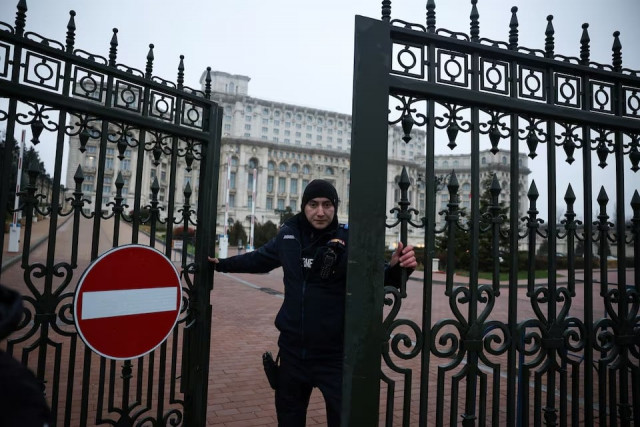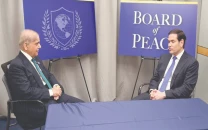Court orders re-run of Romanian presidential polls
Russian cyberattacks and TikTok campaigns blamed for election chaos, sparking nationwide unrest

Romania’s top court annulled the ongoing presidential election on Friday following allegations of Russian interference, ruling that the entire process must be repeated. The second round, originally set for Sunday, had already begun at polling stations abroad and would have seen far-right, pro-Russian candidate Calin Georgescu face pro-European Union centrist Elena Lasconi.
"The electoral process for electing Romania's president will be fully re-run, with the government responsible for setting a new schedule," the court announced.
Georgescu, initially a minor figure in opinion polls before the 24 November first round, unexpectedly surged to a leading position, raising concerns about the legitimacy of the results. He advocates ending Romanian support for Ukraine, a move that could realign the EU and NATO member state closer to populist, Russia-friendly countries like Hungary and Slovakia.
The court’s decision has plunged Romania into institutional disarray. Current President Klaus Iohannis, whose term ends on 21 December, announced he would remain in office until a successor is chosen, enabling him to appoint a prime minister following the 1 December parliamentary elections.
Observers warn the ruling could destabilise institutions, provoke protests, and jeopardise Romania’s pro-Western trajectory. It remains uncertain whether Georgescu will be permitted to participate in the re-run.
Legal expert Laura Stefan from the think tank Expert Forum stated the ruling highlights the vulnerabilities within Romania’s institutions and their failure to detect Russian interference early. On Wednesday, declassified security documents revealed that Romania had been subjected to "aggressive hybrid Russian attacks" during the election period, which Russia denies.
The court, reversing its earlier validation of the first round, concluded that the electoral process had been undermined by vote manipulation, campaign irregularities, and non-transparent funding, citing evidence from the declassified documents. Georgescu dismissed the decision as an "official coup," while Lasconi called it "illegal and amoral," accusing it of undermining democracy. By contrast, Prime Minister Marcel Ciolacu described the annulment as "the only correct solution."
Romania’s anti-organised crime prosecuting unit, DIICOT, announced an investigation into Georgescu’s campaign based on the declassified findings. These documents indicated that TikTok had played a significant role in promoting Georgescu’s candidacy through coordinated accounts and paid advertisements, despite his declaration of zero campaign expenses. TikTok denied favouring Georgescu, stating his account was treated like all other political accounts.
The intelligence agency also reported that Russian cybercrime platforms had published login credentials for Romanian election websites and documented over 85,000 cyberattacks targeting system vulnerabilities.
Political experts, such as Babes-Bolyai University’s Sergiu Miscoiu, predict Georgescu may be barred from the re-run, similar to a previous court decision banning ultra-nationalist leader Diana Sosoaca from the presidential race. Analysts suggest this could radicalise voters and spur further protests.
Romania’s financial markets responded positively to the ruling, with hard-currency bonds rising, reflecting investor optimism about the country’s alignment with the EU and NATO. However, analysts at Capital Economics warned that underlying risks could make the market rally short-lived.
The parliamentary elections remain unaffected, with the incoming government tasked with organising the new presidential election schedule.



















COMMENTS
Comments are moderated and generally will be posted if they are on-topic and not abusive.
For more information, please see our Comments FAQ